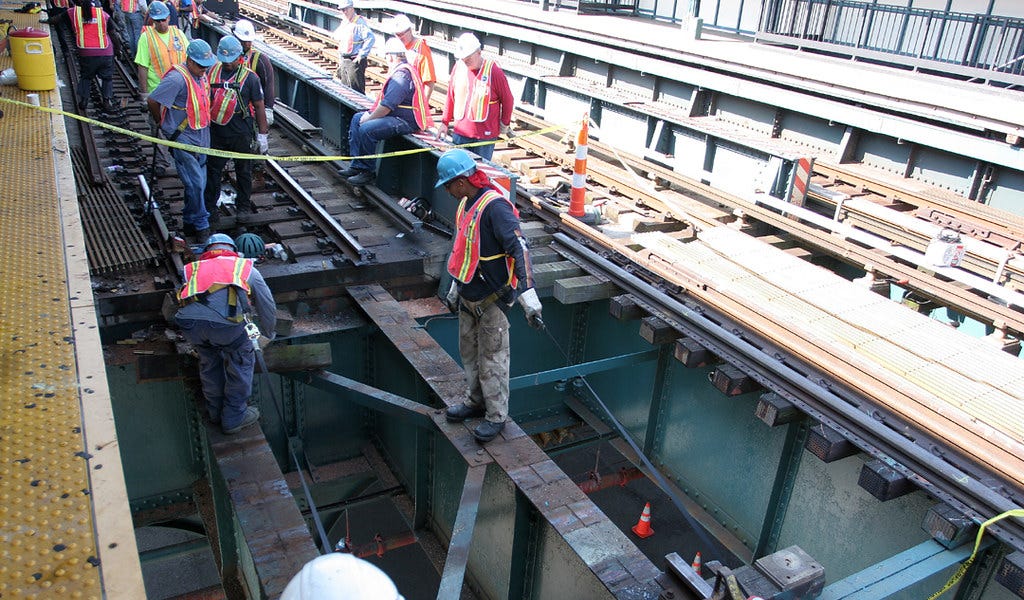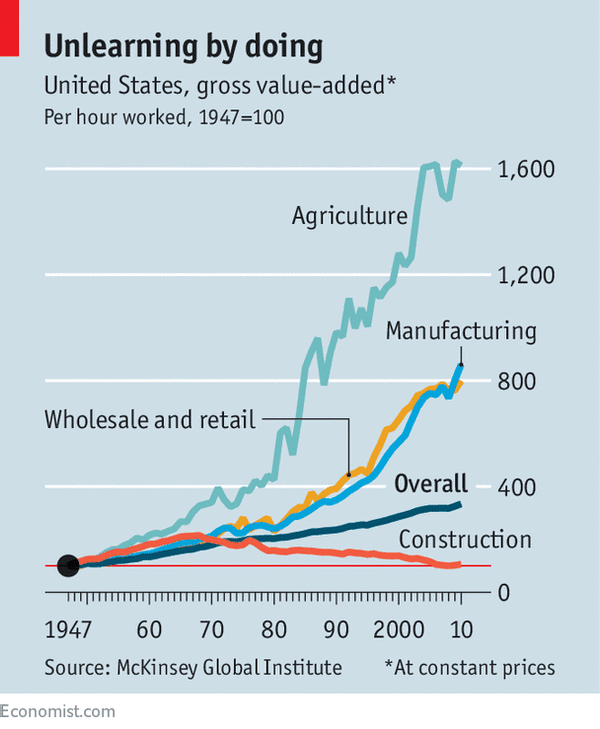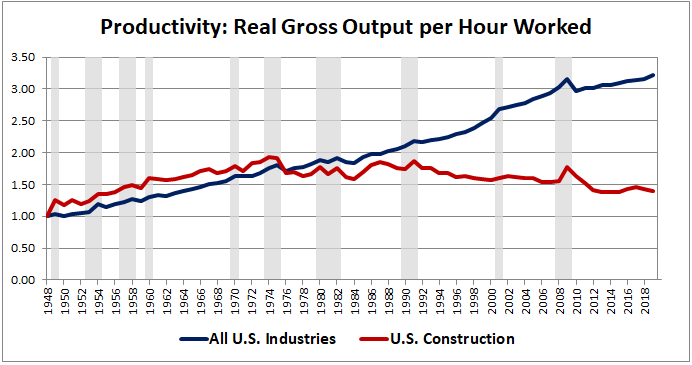You are using an out of date browser. It may not display this or other websites correctly.
You should upgrade or use an alternative browser.
You should upgrade or use an alternative browser.
We could address the staff shortage through factory built housing
- Thread starter time to plan
- Start date
Good news for Carlow as well. God knows the town could do with some good news on the manufacturing jobs site of things.I see Glenveigh have bought the former Braun site in Carlow with plans to set up timber frame manufacturing. Perhaps a step in the right direction.

What happened to construction productivity? Part 1: Measurement
How do we know what's actually happening to construction productivity?

Why did agriculture mechanize and not construction?

Why did agriculture mechanize and not construction?
On her YouTube channel, Belinda Carr poses an interesting question: why did agriculture mechanize (ie: replace manual labor with machine labor), but not construction?
@Protocol it's a good chart but while charts can tell a lot of information there is also a lot of stuff they don't show. US construction productivity was very high after the war because that was when they were building all those vast car dependent suberbs on green field sites, it's easy to be productive when building on clean new sites. You can sort of approximate factory productivity in that environment. Now those suburbs are all built and just like in Europe they need to retrofit existing buildings or clear sites in existing built up areas.
Imagine how productive modern manufacturing would be if you had to take back in an old fridge , computer or car and upgrade it to modern standards. Productivity in manufacturing is based on the fact that everything gets junked and they are always dealing with clean new materials .
Imagine how productive modern manufacturing would be if you had to take back in an old fridge , computer or car and upgrade it to modern standards. Productivity in manufacturing is based on the fact that everything gets junked and they are always dealing with clean new materials .
Interesting but this;Why did agriculture mechanize and not construction?

Why did agriculture mechanize and not construction?
On her YouTube channel, Belinda Carr poses an interesting question: why did agriculture mechanize (ie: replace manual labor with machine labor), but not construction?constructionphysics.substack.com
has been happening in Manufacturing for years. Where I work we use robot arms (co-bots or collaborative robots) to load and unload machines. Those machines can shift for manufacturing one complex part to another in about 30 minutes. In other words that technology's in place in Irish SME's so there's no reason it shouldn't be in place in larger factories building homes.Nonrepetitive movements are fundamentally an information problem - they require some method of telling a machine the state of the surrounding environment, and what to do depending on what that state is.
As software gets better and better, and as technologies like computer vision continue to improve, our ability to solve these information problems increases. Technologies like CNC milling, 3D printing, laser/plasma cutting, and even some steel sheet folding are already capable of quickly and cheaply fabricating different parts, one right after the other.
I really wonder should the State not investigate a Sale-and-Leaseback arrangement? Provide a site and tender out the build to developers. The State would lease the houses for say 60 years at an agreed rent. No upfront risk / borrowing for the government. Fixed income for the developer thereby making finance from a bank much easier. Less risk of the taxpayer getting fleeced too -> the developer would take that risk. You can be sure the houses would be built quickly.We have some excellent construction companies and some great technical universities who would have the skills to develop this industry.
But the venture would require a guaranteed demand for many years to justify the initial expenditure e.g. The government buying 5,000 houses a year for ten years.
Brendan
Isn't that what's happening with the buy to let's at the moment?I really wonder should the State not investigate a Sale-and-Leaseback arrangement? Provide a site and tender out the build to developers. The State would lease the houses for say 60 years at an agreed rent. No upfront risk / borrowing for the government. Fixed income for the developer thereby making finance from a bank much easier. Less risk of the taxpayer getting fleeced too -> the developer would take that risk. You can be sure the houses would be built quickly.
This looks promising...World Economic Forum
